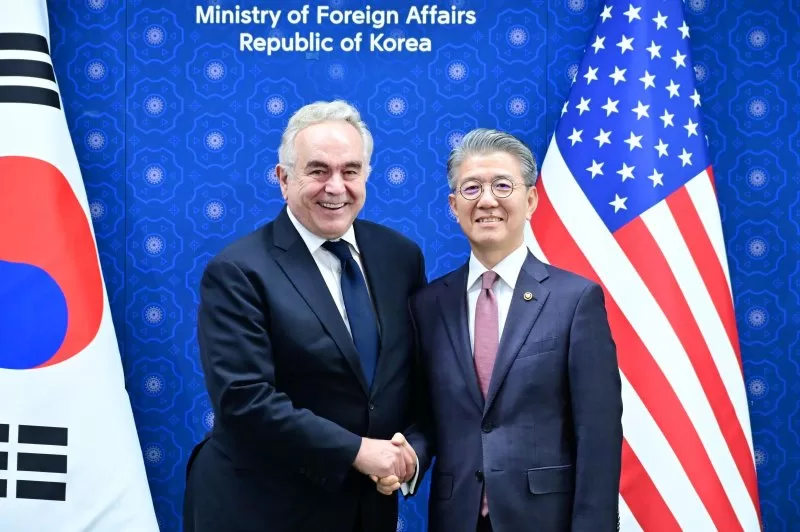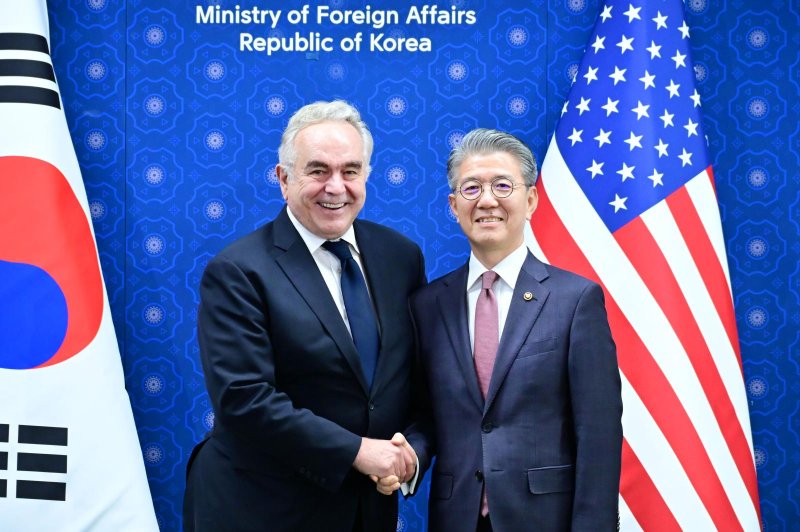The United States and 10 allies formed a new multilateral team to monitor and report on North Korean sanctions violations. U.S. Deputy Secretary of State Kurt Campbell (L), South Korean Vice Foreign Minister Kim Hong-kyun (R) and other ambassadors announced the launch in Seoul on Wednesday. Photo courtesy of South Korea Ministry of Foreign Affairs
SEOUL, Oct. 17 (UPI) — The United States, South Korea, Japan and eight other countries formed a new multilateral team to monitor and report on violations of U.N. sanctions on North Korea, the group said in a joint statement.
The move, announced Wednesday, came after Russia used its U.N. Security Council veto earlier this year to end the mandate of the Panel of Experts, which had overseen North Korean sanctions monitoring since 2009.
Washington and its allies have been seeking ways to develop new oversight mechanisms since the panel officially ceased operations in April.
The Multilateral Sanctions Monitoring Team, or MSMT, aims to “assist the full implementation of U.N. sanctions on the DPRK by publishing information based on rigorous inquiry into sanctions violations and evasion attempts,” the joint statement said.
The Democratic People’s Republic of Korea is the official name of North Korea.
“We underscore our shared determination to fully implement relevant U.N. Security Council Resolutions regarding the DPRK, reaffirm that the path to dialogue remains open, and call on all states to join global efforts to maintain international peace and security in the face of the ongoing threats from the DPRK,” the statement said.
Members include the United States, Australia, Britain, Canada, France, Germany, Italy, Japan, the Netherlands, New Zealand and South Korea.
The launch was unveiled at a vice foreign ministers meeting in Seoul that included U.S. Deputy Secretary of State Kurt Campbell, South Korean Vice Foreign Minister Kim Hong-kyun and Japanese Vice Foreign Minister Masataka Okano.
In a separate statement, the U.S., South Korean and Japanese diplomats “expressed their grave concern over the DPRK’s illicit arms transfer, malicious cyber activities and dispatch of workers abroad to fund its unlawful weapons of mass destruction and ballistic missile programs, and decided to continue our trilateral efforts focused on combating them.”
Russia and North Korea have grown closer since Moscow’s invasion of Ukraine in February 2022, with the two isolated regimes signing a mutual defense pact in June.
North Korea is accused of supplying munitions and missiles to Russia by Washington and Seoul, although Pyongyang denies the claim. On Wednesday, South Korea’s Defense Ministry said it was closely monitoring the possibility of the North also sending troops after Ukrainian media reported Russia was forming a new battalion including up to 3,000 North Koreans.
The Security Council imposed sanctions on North Korea in 2006 after Pyongyang’s first nuclear test and has added several rounds since. The Panel of Experts was established in 2009 to help monitor compliance. Its mandate had been renewed annually until Russia’s veto.
The panel’s final report in March cited numerous sanctions violations by North Korea, including an estimated $3 billion generated from cyberattacks used to fund the regime’s illicit weapons program.

